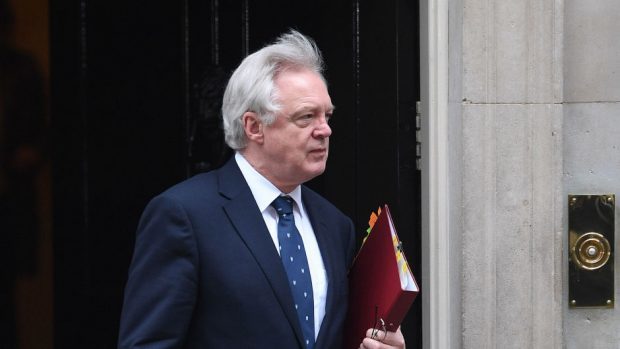The Government has published its European Union (Withdrawal Bill), aka the Great Repeal Bill, which will end the supremacy of EU law in the UK. But opposition parties are already warning that getting the Bill through Parliament will be a great struggle.
Here are some of the key questions surrounding the legislation.
What it is?
Probably one of the most significant Bills ever to come to Parliament, it is meant to transfer EU law on to the UK statute book.
Why does the UK need EU laws after voting for Brexit?
To ensure what Brexit Secretary David Davis calls “a calm and orderly exit”.
EU laws cover all sorts of things like environmental regulation, workers’ rights and financial services, so if they were not transferred, all these regulations would no longer have legal standing in the UK, creating a “black hole” and causing uncertainty.
The Bill will give parliaments and assemblies in Westminster, Edinburgh, Belfast and Cardiff the power to drop or change EU laws it does not want in future.
So what is the Bill repealing?
Another one passed by Parliament after a referendum – the European Communities Act 1972, introduced after the UK voted to join the EU, or EC as it was back then.
What happened to the “Great” bit?
Theresa May coined the term at her 2016 party conference – when she still had a comfortable majority. But it was never likely to be the official title of the Bill in reality.
Why are opposition parties not happy with the Bill?
Labour claims the Tories want to undermine workers’ rights, citing the Bill’s failure to incorporate the European Charter of Fundamental Rights into UK law as proof.
What does the Government say?
Ministers believe the rights in the charter are already contained in the EU rules which the Bill will convert into domestic law on the day of Brexit.
The UK voted for Brexit so should not the opposition back the Bill?
Labour says it respects the referendum result but wants a Brexit which “puts the economy, jobs and living standards front and centre”. The Lib Dems want another referendum on the final Brexit deal, including an option to remain in the EU.
What are the chances of Bill passing through Parliament smoothly?
Not great. Now Mrs May has found herself in charge of an uncomfortable minority Government, it will only take a minor rebellion within Tory ranks, or by the Democratic Unionist Party MPs propping up her administration, for the Bill’s progress to be interrupted.
